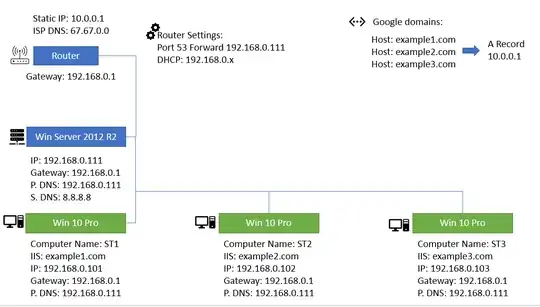For past few weeks I'm trying to learn how multiple web servers could be setup under one static IP. I understand that web hosting companies may have a lot of Static IPs but using one IP for one server does not sound efficient.
I read lots of articles, posts and watched videos referring some of them below.
I setup 3 web servers and one windows server to resolve DNS, I forwarded port 53 to Windows Server to listen requests for DNS. But later I came to know that when web request is initialed first DNS Server resolves IP in this scenario it reaches to my public static IP then HTTP request is sent to this IP, at this point I do not understand what approach could be adopted to forward received HTTP request to related web server.
Please note that I understand port forwarding and I was able to achieve it, I also know about reverse proxy, but they do not look like a professional approach, what I'm looking for here is to learn how hosting companies achieve it.
Here are some related post I found
https://serverfault.com/questions/965353/external-requests-to-internal-dns-server https://serverfault.com/questions/435791/internal-dns-server-provide-response-to-external-requests How does DNS work when it comes to addresses after slash?
Here is architecture of my setup I'm sharing here so that you can reference to explain:
If you think more information needed or there is room for improving my question please ask me in comments so that I know what is missing or how can I improve my question.
